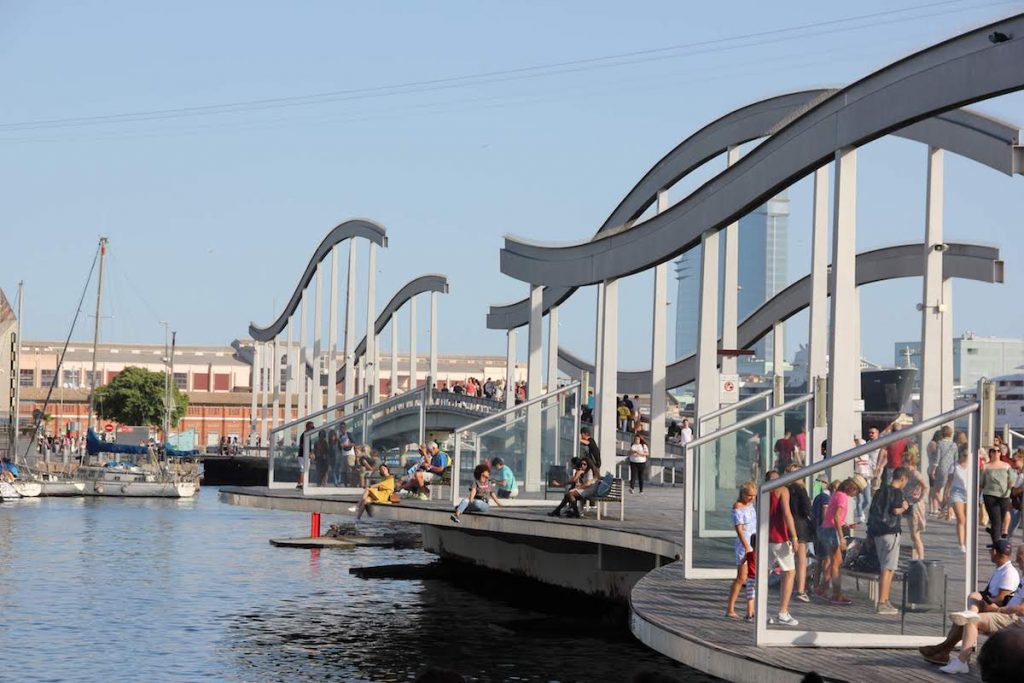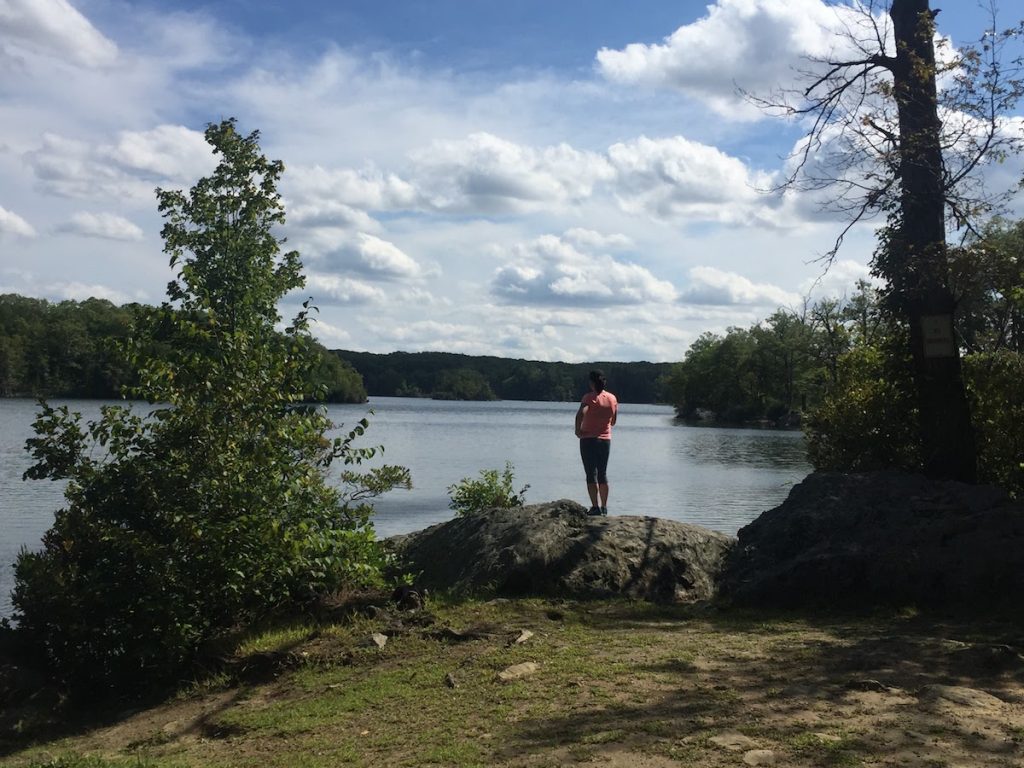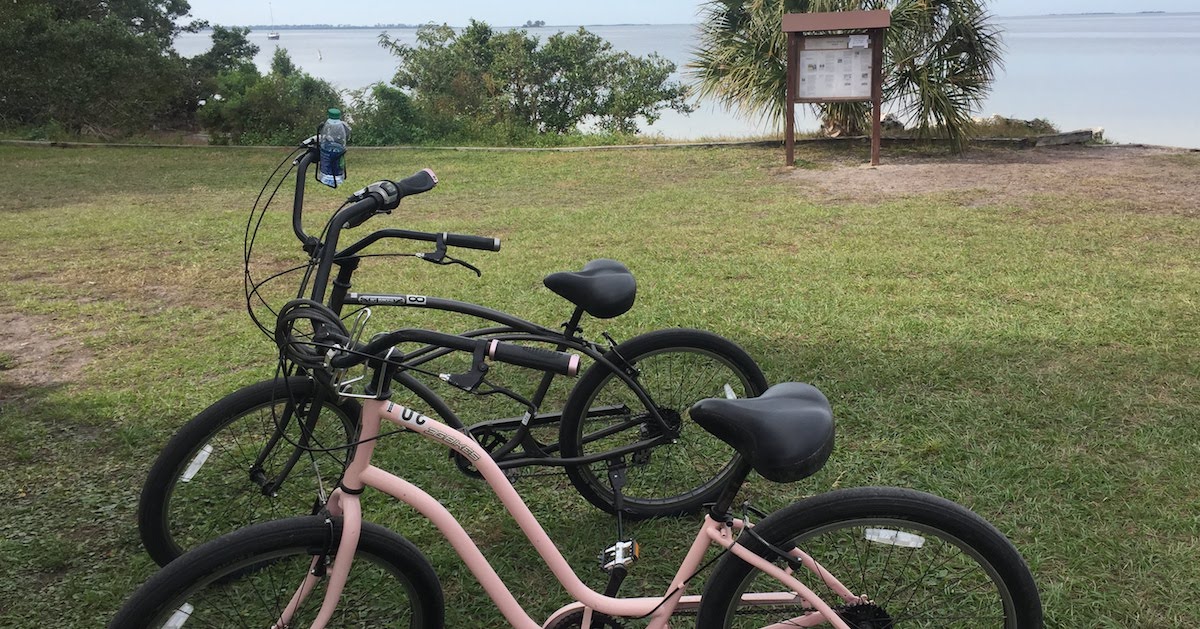In a team meeting the other day, one of my coworkers mentioned how difficult it is to keep track of the names of new employees because so many people are retiring, and how he would like to retire as well to enjoy life more.
Another coworker in her late twenties then stated that she does not want to retire:
“No offense to the old folks, but why would I want to retire with nothing to do?”

I didn’t want to jeopardize my FI cover, so I kept my mouth shut and focused on the meeting topic. She was mostly referring to traditional retirement and had obviously not been exposed to the prospects of early retirement.
Early retirement doesn’t need to be boring
Traditional retirement does not sound like a ticket to an exciting new chapter in someone’s life. And I don’t mean this because of age, but because it appears that these people gave their best years to the corporate world.
And I get the impression that retirement is something they do when there is nothing else more interesting on the horizon.
These people are mostly retiring from years of a routine that gave their lives meaning. They soon face the pressures of an empty schedule and a search for meaning. This does not appeal to the younger generation.
Would an early retirement, on the other hand, have the same connotation?
There’s also the physical aspect to consider. You may also be less healthy than you once were, and a trip up the stairs to the third floor may feel like a trek to Machu Picchu.
The good news is that this does not have to be the case in retirement.
What about trying something new?
In a non-mainstream sense?
It’s a movement started by Vicky Robbins and Joe Dominguez in the 1980s that is now gaining traction thanks to the internet and many brave souls who expose how they’re living awesome lives in early retirement.
As you can see, I’m not inventing anything new here.
I’m attempting to instill the idea that it is possible to retire well before the age of eligibility for social security and live a more fulfilling life. A way of life in which mandatory work is optional.
One in which you have the ability to turn off your alarm clock because having to deal with that alarm until you’re 65 is no joke!
That 9-5 may seem exciting in the early working years, but it quickly becomes tedious.
Early retirement could mark the beginning of a new you. It’s a great way to cut years off your working life.
It can be a way to reinvent your life based on your happiness, and this blueprint can assist you in doing so.
The ultimate guide to early retirement
Early retirement can also be exciting, fun, and a wise way to never have to worry about money again.
We’ve been on the road to early retirement since 2012, achieved financial independence in 2017, and hope to be out of the rat race by the winter of 2019 (two more winters would be too much for me).
Based on our findings and what has truly worked for us, we felt it was time to develop a blueprint to assist you in achieving early retirement.
Put this plan into action, and you could be on your way to early retirement as well!
Because of the shorter timeframe, we believe that early retirement is feasible for the majority of people and is less complicated than a traditional 30-year retirement plan.
Time is your ally
I mean, 30 years is a long time to be committed to anything, including a mortgage. Who takes 30 years to pay off their mortgage? Many people refinance multiple times during their ownership period in order to obtain better interest rates or cash out.
Well… Guess what, people?
You can’t refinance your way to a comfortable retirement. If you are short in the end, you cannot refinance your savings to make them multiply.
Aside from time, your other ally is compound interest. When you invest, the same force that will force you to pay for your house at least three times during your lifetime if you stick to your 30-year mortgage schedule will work in your favor by multiplying your savings over time. That is why it is critical to begin saving for retirement as soon as possible.
We are retiring when we want and living life on our terms by following the 7-step plan outlined below. We’d love to see the same for you, but in order for that to happen, you’ll need to get started on your strategy.
Take financial independence by the balls and prepare to leave pawn duties behind and become the king/queen of your domain.
How to retire early with a bang, based on proven strategies that have worked for us.
1. Craft your ideal retirement plan
Forget what society thinks you should do with your life. You’ll have enough money to live your life the way you want.
Forget about how bloggers spend their early retirement, and even less about how we intend to spend ours. It’s all about you! Use us only as a guideline because your plan should be unique to you.
External circumstances in the future may occasionally interfere with your happiness, but that should not prevent you from creating an ideal retirement plan.
To create your ideal retirement plan, consider what kind of lifestyle you’d prefer if you didn’t have to work for a living.
Do the exercise in Tatiana’s post on what truly makes you happy, and you should be able to eliminate a lot of wasteful spending that you thought you needed to achieve happiness.
Happiness does not come from being rich and famous, according to research, so working on other aspects of your life, such as your relationships, can be beneficial to your happiness.

After you’ve completed the happiness exercise, you’ll need to consider your needs and desires.
Don’t be afraid to fantasize and think outside the box. Thinking about early retirement is already outside-the-box thinking, so why not continue on this path?
Here are some main categories to think about. You may include others that are important to you.
Lifestyle
What do you want to do with your time?
What would get you out of bed in the morning?
Do you want to live in a rich cultural environment?
Do you wish to spend more time exploring your surroundings?
You might even want to be more active in early retirement to help avoid chronic illnesses. Your entire strategy should be built around your desired lifestyle.
Make a list of locations that offer these types of activities and envision your lifestyle after early retirement.

Our activities after retiring would involve swimming, long walks by the beach, walking around the neighborhood, sports, biking, going to concerts, trying out local restaurants, building community relationships, blogging, dancing, possibly teaching, learning musical instruments, singing karaoke, exploring new places…
It’s a nice list of things we’d like to do if we had more time on our hands!
Location
Would you stay in your current neighborhood if you didn’t have to work?
What is your ideal retirement location?
Perhaps you prefer a ski-friendly climate and would prefer to relocate to the mountains.
Perhaps you, like us, prefer warmer weather and prefer to visit a beach destination.
Whatever your preference is, make it known and discuss it with your partner or spouse, if you have one.
If you want to stay where you are, it may be sufficient to have investments to cover your rent or to try to pay off a mortgage.
We pay $1,150 per month in rent, but we know that once we retire, we’ll pay much less in rent or only need to cover maintenance, insurance, and taxes if we decide to buy a house.
Because our future state will be very different from our current state, we calculate how much housing we will require in our future state.
Is there anything in your desired location that you would enjoy doing?
As an early retiree, you may prefer a location with more activity than destinations geared toward traditional retirees.
If moving to a traditional retirement community isn’t your cup of tea, you might want to look into other options, including venturing outside of the United States. The entire world is at your disposal! Prepare to go exploring.

Health and medical care
Early retirement with a healthy body and mind is critical to fully enjoying your retirement.
We recognize that some health issues are beyond our control, but we strive to keep health-care costs as low as possible now and in the future by eating as healthily as possible and exercising.
Whatever your retirement age, the health and medical care options available to you will influence where you live.
Because health care is constantly changing, this cost is somewhat unpredictable for us. We may move abroad in early retirement, but if we stay in the United States, we will most likely choose a high deductible plan.
Being proactive about our health should also help us save money on insurance.
Schooling
If you have or plan to have children, consider their educational needs when deciding where to live.
Unlike early retirees, most traditional retirees do not have to worry about schools because they have finished raising children by the time they reach retirement age and can move wherever they want.
Since this is not a priority for a traditional retiree, locations catering to traditional retirees may not provide the best curriculum for your children.
If you’re fortunate enough to be able to retire extremely early, one disadvantage is that you may be forced to follow your children’s school schedule for many years to come, so consider what you’d like to do while they’re in school.
How about exploring schools abroad?
If you want to live abroad, you may have to pay for private education because:
a) Public schools may be restricted to local residents with low incomes.
b) If you move to a third-world country, the education system may be inferior to that of the United States.
c) __________________________ (Fill in the blanks!)
Take Justin, for example. He retired at the age of 33 and now lives in North Carolina with his wife and children. This couple has considered retiring abroad, and he discussed the benefits and drawbacks on his blog.
With three children in school, he sees school tuition as a significant disadvantage of living abroad.
In effect, living in Raleigh offers us some really great schools for free (technically, $600 per year or so if you include the schools’ tax that’s part of our $1500/yr. property tax bill).
Our oldest kid started school at what is arguably the best middle school in the district, and this school feeds into the best high school in the district. It’s very competitive to get into both schools so we are very fortunate.
If we move away for a year or two abroad, we would struggle to find an academically rigorous program abroad that isn’t cost-prohibitive. And we would most likely lose our seat at the awesome middle and high school and have to compete in the lottery process again.
For us, it makes a lot of sense to stay in Raleigh where we know how to navigate the school system and where high-quality schools are free. The cost of living is more than Mexico (a likely overseas retirement destination) yet not high compared to the rest of the US.
An added benefit is having all of the kids’ friends here and all of our family here.
Yes, we’re very fortunate to have high-quality public schools here in the city. It helps the financial plan in early retirement for sure!
Justin – Root of Good Blog
As Justin points out, staying in the United States may be your best bet for providing your children with an excellent education.
Family distance
Another point raised by Justin is that being close to friends and family can be an added benefit to staying in the area, which is something to think about in retirement. Consider how close or far you want to be to your friends and family.
You’ll have more time to spend with them in retirement, but they’ll still have financial obligations that bind them to a work schedule.
If you don’t visit them frequently, being farther away may not make a difference. Because time will be of the essence, the distance may even strengthen relationships as you focus on spending more quality time together.

Also, don’t let the proximity of friends and family discourage you from living abroad.
Jeremy and Winnie of the Go Curry Cracker blog retired early and traveled the world with their son, Julian, while maintaining strong bonds with their loved ones.
We are an International family at the core, with family spread across two continents. Combined with our nomadic lifestyle, it is impractical to spend a lot of time with all of our family members. So we focus on quality over quantity.
When Jr was born, I flew my Grandma and Mom to Asia to spend three weeks with their newest grandchild. Last year we gathered four generations of family for a week on a lake, 23 of us in total (grandparents/parents/siblings/our children.) This year, we are spending a week with extended family and then taking my Grandma and Mom on a 10-day cruise to Alaska.
This concentrated quality time provides a strong environment for togetherness and bonding. There are no other responsibilities other than enjoying each other’s company. Everybody is on vacation, so there are no work distractions.
During the remainder of the year, Skype/Facetime allow us all to stay in touch at least monthly, and Facebook and Facebook Messenger keep everyone in the loop. Plus all of my family follows our blog and Instagram.
I was discussing this style of family connectedness to a reader once, and she commented that our global family seems to have more quality time together than her own, even though they are in the same large city. I don’t know if that would be the case for others, but it works for us.
Jeremy – Go Curry Cracker Blog
Jeremy and his family don’t let the distance between them keep them apart.
In our case, we’re thinking about moving abroad. We’ve decided to spend our first leg of early retirement in North America. We’re thinking about making Punta Cana our first home because it’s a central hub that connects us to many countries around the world while also allowing us to fly back to the United States in 3–4 hours to visit friends and family.
Also, the fact that many of our friends and acquaintances visit Punta Cana would make it easier to meet up when they come to visit.
Punta Cana is close to Florida and has an international airport with flights to many of the countries we want to visit after retirement. Punta Cana International Airport provides service to 96 cities in 28 countries. If that isn’t enough, two more international airports are within a two-hour drive.
These are just a few of the benefits we discover as we explore the area. Continue to follow our journey to see where we end up in two years!
Transportation
If you’re a working couple, you might have two cars. However, once you retire, you may be satisfied with just one vehicle, or none at all. Consider having access to public transportation or being within walking distance of the places you’ll visit.
We envision owning a vehicle in early retirement, but we also want to be able to walk to places and use public transportation.
2. Figure out your FI number
To calculate how much you would need to fund your lifestyle in perpetuity, multiply your estimated annual expenses by 25. This is calculated using a safe withdrawal rate of 4% per year from your investments, adjusted for inflation. This figure can be used as a guideline.
If you want to be more conservative, you can save 25 to 33 times your annual spending in your investment portfolio, keeping your portfolio withdrawal rate under 4%.
To determine your projected expenses, you must first track your current spending to see where your money is going. We use Mint to keep track of ours.
The great news is that if you’re planning for early retirement, it’s much easier to estimate your future expenses if you only have to look 10-20 years ahead of time, as opposed to a 30-year traditional retirement.
We calculated our FI number in 2012, and our expenses have decreased since we began tracking them.

How long do you think it would take you to get your FI number?
Your savings rate will be crucial. After we married, it took us three years to reach our number. We got there much faster than we expected because our average savings rate over the last five years was around 65 percent.
Don’t be discouraged if your target seems out of reach; you may have a low savings rate to begin with. We didn’t always have a high savings rate.
Our high savings rate resulted from reducing spending in order to become financially independent and have the option to retire early. Additionally, your investment gains will help to accelerate the process along the way.
3. Cut spending
Having more possessions will not provide you with long-term happiness. It is your positive relationships that will keep you happy.
With this in mind, you’ll be able to reduce your spending without feeling deprived. Begin by lowering your living expenses in three major areas: housing, food, and transportation.
If you prefer to buy a house, make a large down payment, buy only what you really need, and keep upgrades to a minimum. I agree with the advice to wait until one is financially independent before purchasing a dream home.
In addition, if you’re interested in house hacking, check out this episode of ChooseFI, where Coach Carson teaches you how to live for free!
My biggest blunder was purchasing a home while in debt and without a solid financial foundation. Fortunately, I realized my mistake, and after selling the house, I decided to rent instead and save for a house after we reached financial independence.
Cooking your own meals, bringing lunch to work, and limiting your eating out will help you save money on food for the most part. We cook the majority of the time and bring our lunch to work.
We used to spend a lot of money on eating out, but as we became more health-conscious, we realized that the best ingredients are the ones we use at home.
As far as transportation, my wife and I work for the same company and downsized to one vehicle since we didn’t see the need for a second car. We were able to lower our cost of living by moving closer to work.
Our commute situation is so good that even if we had a major financial setback and couldn’t afford to own a car, we could still get to work and shop for groceries and household supplies by foot. Even better, we no longer require our jobs to survive. Win-win situation?
4. Eliminate all consumer debt and stay out of it
Pay off your credit card debt, period. Get rid of it by increasing your income, cutting your expenses, or both. It is critical to get out of debt as soon as possible.
While you may not see your bank account grow, your net worth will grow as you pay off your debt. A debt payment is a guaranteed return on your investment.
If you pay off a credit card with a 13% interest rate, you are guaranteed a 13% return on your investment! So, before investing in taxable accounts, I would at least try to pay off any debt with an interest rate of more than 3%.

5. Invest wisely
Investing doesn’t need to be complicated.
To invest in stocks and bonds, there are investment vehicles such as a Target Retirement Fund or a LifeStrategy Fund that make investing simple for average people. It can be very simple.
We’ve been investing for over ten years, and one way we keep things simple is to invest primarily in low-cost index-based investments.
Your investments should provide adequate long-term returns to help with some of the heavy lifting. This means you won’t have to work for every dollar you’ll need in retirement.
The returns on our investments made up 23 percent of our portfolio during the first ten years of investing, as shown in the chart below.
Passive income is equivalent to working three days and being paid for four, or buying three and getting one free! Your money works for you 24 hours a day, seven days a week.

Create other sources of passive income streams
Another excellent way to achieve financial independence and early retirement is through real estate. Again, it all comes down to doing your research and looking for passive income sources that you are comfortable with.
We prefer to invest in real estate and have a rental property that provides a minimum of a 10% return on investment.
6. Minimize taxes
We wanted to give tax minimization its own section because it is such an important strategy in accumulating wealth. When I started learning about how wealthy people amassed their wealth, I discovered that they try to pay as little tax as possible. As a result, the wealthy are obsessed with taxes and politics.
Well… What do you think?
You should not overlook tax planning because it could help you reach early retirement sooner.
Traditional 401(k)s
We go to any length legally possible to reduce our tax rates. We can reduce our taxes by maxing out our 401(k) accounts. This saves us a significant amount of money in taxes.
How much money are we talking about saving here?
We save at least $9,000 in taxes each year. That’s $9,000 more per year growing tax-free in our accounts. The dividends that are re-invested and compound are the cherry on top. We might be able to take this money out tax-free or at a low tax rate. Of course, this is subject to future tax laws.
Roth IRAs
Investing in Roth IRAs is another way to save on taxes. Roth IRAs are typically funded with post-tax dollars. You basically pay taxes now if you believe you will be in a higher tax bracket after retirement, thus saving taxes.
We’ll most likely be in a lower tax bracket after retirement, but we continue to invest in Roth accounts. We must pay taxes on the remainder of our income because we have already maxed out our 401(k)s.
By putting this money into Roth accounts, we can avoid paying taxes on dividends and capital gains when we withdraw it later.
You can also withdraw your contributions at any time, without penalty, while the gains in the accounts grow tax-free. This is a fantastic feature because it allows you to access this money during your early retirement.
7. Prepare to retire
Work on your exit strategy
As your retirement date approaches, you should implement your exit strategy and prepare to hang your boots.
Begin to plan your next chapter. This could include buying or selling your home, deciding when to relocate, finding a new school for your children, or even starting a family if you’re still young enough.
You are financially prepared to retire once you reach your FI number. It’s a good time to finish your retirement account drawdown strategy.
Evaluate your asset allocation as well to ensure that it meets your future needs. We anticipate that dividends, long-term capital gains, and real estate income will cover our retirement expenses.
Retire early to live your life on your own terms!
After a few years, you’re in your shining FU money armor. You saved and invested wisely. You cut costs, and as a result, your quality of life improved. The best part is that you’re happier than you’ve ever been. Your only option may be to resign from your job.
Quitting your job may not be as simple as you think! Leaving a career that you worked hard for may make others think you’re insane. But who really cares?
They may have thought you were insane from the moment you thought early retirement was a possibility. They might have thought you were crazy if you thought you could live off your investments for the rest of your life. You certainly can!
So pause, breathe, and live in the present moment. YOU’VE DONE IT. CONGRATULATIONS! ¡FELICIDADES! You are now liberated. It’s time to retire to something far greater than you can imagine, and certainly far greater than mandatory work.
How would your ideal retirement plan look? What additional steps would you add to our list?
This article has been featured on Physician on FIRE





